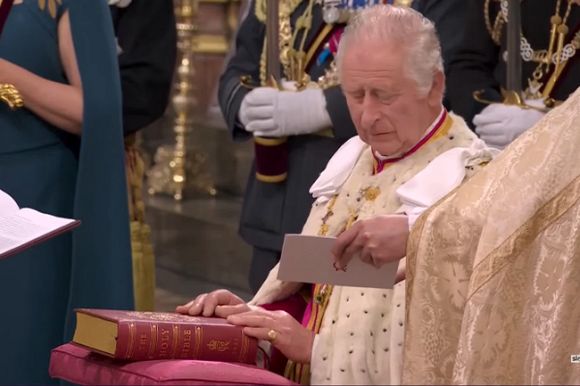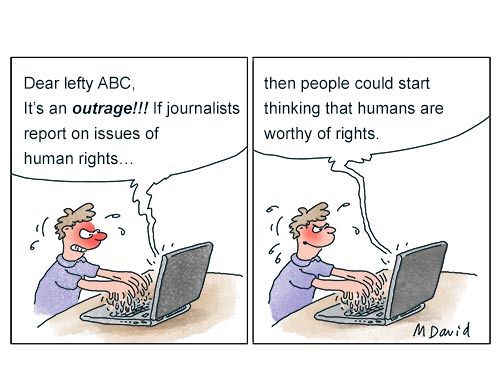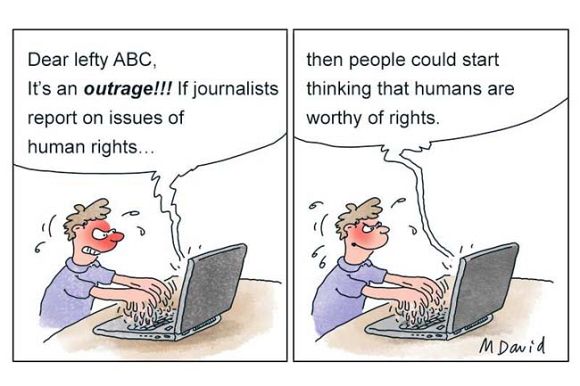Dr Lee Duffield, a veteran of ABC journalism and former journalism academic, has been appraising the organisation and its work.
He has described one old ideology fast disappearing, a conservative aversion to new ideas and any airing of conflict in society; and two main ideologies currently in force: one a professional ideal saying the ABC must stick to instructions to be a broad church for ideas and one accentuating “diversity” or “inclusivity”.
THE ABC’S HANDLING of the recent two big “royal” occasions shows how it can fumble if swayed by ideology. At the Queen’s death, with ample advance warning, it set up a big team in London, paying homage to a royalist state ideology scarcely in force here and so overdoing the service provided to middle Australian folks very moved by the event.
That same week, British journalists rushed off to the shock counter-offensive by the Ukrainian army, with no warning. Following news sense and social responsibility, they covered both the royal obsequies and the battle. The ABC was not only slower on the change in Ukraine but actually cancelled the news to show those long columns of English men weirdly lurching through tourist spots of London.
For the coronation of King Charles, the ABC went the other way. What looked to be the official BBC or government TV feed gave appropriate service to people just wanting to see the spectacle, except that they first got a panel show denouncing it all as a colonial event.
Much of the show’s content explained connections – royalism and colonial subjugation – in a reasoned way, for example, from lawyer Teela Reid; but it was ill-timed, misplaced and received criticism as an ideological statement by the ABC. The lead presenter, Stan Grant, was later described as a guest commentator, but whether on contract or payroll, was employed by the ABC as its international affairs analyst in 2020.
Normal audience members’ psychological defences against being propagandised would sort out this ideological treatment in both cases; whether “conservative” ideology, ABC types getting frocked up to see off the Queen, or “diversity” ideology, framing the event as colonialist.
To help with getting such things right, staff are urged to consult the ABC’s “rule book”, its Act of Parliament and several supporting documents.
These represent an ideology of its own, a “broad church” idea consistent with liberal thought, as well as a prescription for working professionally:
- it is charged with being an institution of society, a great democratic forum for all;
- to act as a beacon of truth and free thinking; and
- to guard its own independence in order to secure the survival of its mission.
Two issues can be addressed here: professionalism, broadcast procedures and craftwork as the rule; and necessary limits to broadcasters’ own agendas.
Craftwork and new technology
Drawing here mostly on audio services as examples, this monitor of the ABC finds much high-standard work but is concerned about blind spots. As well, new digital kit speeds up productivity and helps manage the burden of tasks but can be a trap.
Lapses like the following occur, avoidable where internal discipline ensures the broadcasting protocols will come first in producers’ minds before any tinkering and prioritising with new ideologies.
- Long interviews or whole programs loosely edited, on humdrum themes, often billed as “storytelling”. Radio especially demands crafting, using broadcasters’ professional authority to catch attention and survive distractions — quash the boredom factor. Interviews accordingly cannot be just recorded conversations, even though needing to sound like conversations. (Examples of successful long-form interviewing include Radio National’s Conversations, with well-chosen guests and practised, well-briefed presenters.)
- Audiences are expected to tolerate bad outcomes from off-the-shelf digital devices, like their own phones, which use only automatic settings, prone to make speech unintelligible; worse where the producers fail to use a microphone or deploy a viable microphone technique. Sports media conferences can be the main offenders there.
- This might be overlooked with podcasts, as audiences will be literally locking in to pay attention, but the practice of then re-broadcasting such work on radio should stop. The other way around is successful, well-made radio programs being podcasts.
- A side issue: Easy digital sound mixing has brought a habit of pacing speech with rhythmic, quasi-musical noise, evidently meant to invoke mood, but when overdone it blots out the speech. If “sound engineers” do this, are they needed? Sound mixes have always enabled dramatic effects but over-indulgence on production values spoils the program.
- Good discipline is needed to move off the workstation. Credible coverage can be done, often, by downloading interviews and other sound to make packages. But professional reporters are needed also to go and get original material from the field. This year, audiences must appreciate the focused fieldwork of ABC correspondents in the Gaza war, for example, Four Corners on 11 March and some in Ukraine; credible information-giving and analysis — from being there.
-
The hungry news machine is not adequately fed with numbers and a variety of stories. Is there some problem in the processing system, causing not enough stories to be reported? One news report might actually run well over 12 hours unchanged, with no updates or follow-ups. Anticipated news like sports results can be hours late.
Broadcasters’ own values and agendas
Values of broadcasters are not so problematical where they internalise the professional ideology spelt out in the “rule book”. Where broadcasters have strong individual or group views about social justice, class, race and ethnicity, they, and their managers, have to think hard about handling such issues on air.
The case of Stan Grant has already been mentioned. An Indigenous man, eminent in the television industry, moved into a specialist role advocating for Indigenous rights and recognition to include introducing programs like Q+A using Aboriginal language or delivering short statements on the topic.
A note made before hearing about Stan Grant being abused by trolls mentions his refreshing zeal and a “commercial journalist venturing into sincerity”, seeing the ABC as a place where a search for meaning and justice could be made with reference to the broadcaster’s own story. In the ABC rulebook, that would normally be disallowed, as not distanced enough, but with a justifier that Indigenous Australians, who “came first”, might have some special prerogatives.
Other attitudes came out, with complaints and racialist invective on social media leading to his resignation. Perhaps here it was a misjudgement about how far you can go on the ABC without uncontrollable, wrong and highly disproportionate consequences.
The ABC has often had “capture” activity, wanting it to be run primarily for the benefit of employee groups or to push favourite ideas. An example was given in a previous article of two programs, the recently terminated Counterpoint and Between the Lines, where lay presenters provided a facsimile of professional practice but intentionally followed a partisan agenda.
The presenter of a Radio National project about birthing said it aimed at shifting government welfare policy to “change the system to focus on the family rather than just the baby” [RN 18 November 2023]. There was talk of innovative “pushing the boundaries of storytelling” through crowd-sourcing (itself innovative circa 2010).
The late Journalism Professor Alan Knight – ex-ABC and a member of ABC Friends – began tracking networks within the organisation, for instance, identifying undisclosed relationships of married couples involved in company politics. He cited an intake of trainee journalists where not one, he said, was “Anglo”.
In the outcome, those particular appointments were successful; concern about it was a question of fairness and representation of Australia’s multicultural society, whether social engineering was intended, and rights and wrongs thereof.
Heavy use of many non-mother tongue English speakers as guests is threatening to undermine “diversity” principles because it is often done poorly; many speakers talking on, unassisted. Standard and respectful practice on the part of broadcasters is and should be to support such interviewees to ensure their meaning is clear. There may be paraphrasing by the presenter and time taken to reduce it, editing down to get the most telling and intelligible points in the interviewee’s own voice — authenticity plus intelligibility.
It will be listenable — shorter in duration and tight. All who have worked with languages understand that even the highest-rated “non-English” speakers will tire and their English will deteriorate.
If wanting to privilege access for speakers with heavy accents for ideological reasons to do with “inclusivity” and colonial redress, it becomes counterproductive if audiences cannot understand what is being said. People will turn off. It gets worse with poor production discipline, causing unsustainable talent to speak at length, especially if on Zoom or similar, or off-mic.
Futures
How are things likely to work out? In the Voice to Parliament Referendum last year, the ABC hosted both campaigns, as would be expected. It began by joining in the anticipated national consensus operation, providing heavy exposure to Indigenous events, documentaries and art programs, all indicating “Yes”.
That went with the on-air adoption of Indigenous place names, presumably ordained by the ABC Board; some presenters now decline to use European names, such as “Melbourne” or “Sydney”.
When the Coalition parties moved to “No” and the Referendum became party political, their messages got extensive attention, especially in news and current affairs. In the ABC, an ideological zero-sum game is disallowed, with no winner-take-all.
In 2024, setting “diversity” as a priority accords with strong currents of belief and prejudice in contemporary society, and within the ABC. It has some backing in the legislative instructions, especially recognition of multiculturalism. Where the treatment of that is consistent with the professional ethos set out in the “book”, the ABC will be meeting its obligations.
You can read the first part of this story here.
Amongst Dr Lee Duffield’s vast journalistic experience, he has served as ABC's European correspondent. He is also an esteemed academic and member of the editorial advisory board of Pacific Journalism Review.
Related Articles
- ABC in 2024: Facing the challenge of change-management
- ABC Right-wing programs caught up in round of closures
- The ABC continues to falsely trash Labor’s economic credentials
- It's time the ABC resisted external threats and attacks
- CARTOONS: Mark David is learning his ABCs
 This work is licensed under a Creative Commons Attribution-NonCommercial-NoDerivs 3.0 Australia License
This work is licensed under a Creative Commons Attribution-NonCommercial-NoDerivs 3.0 Australia License
Support independent journalism Subscribe to IA.
















